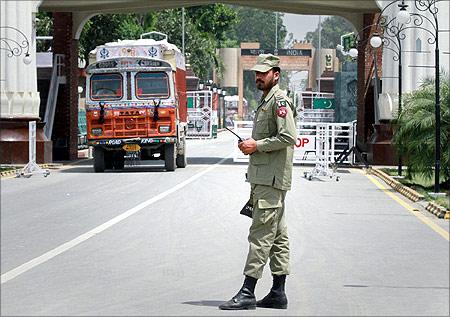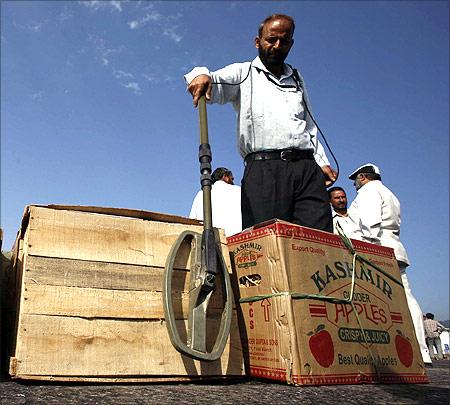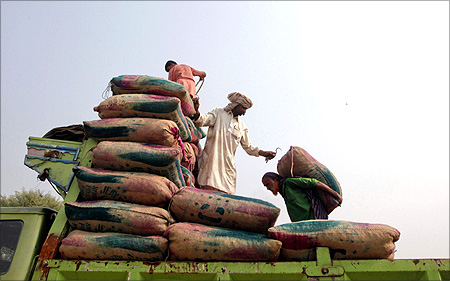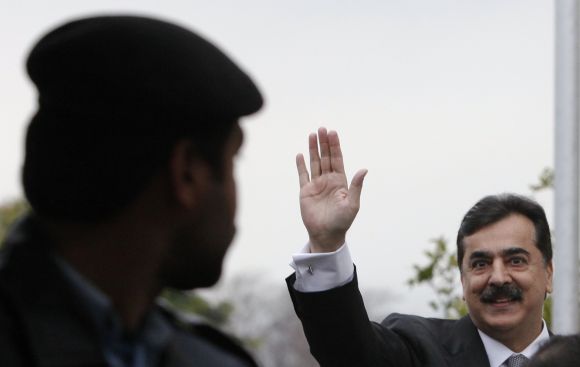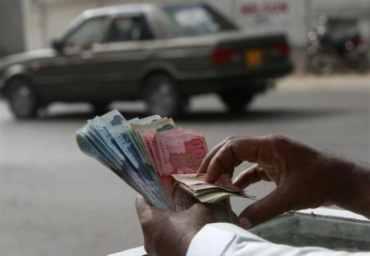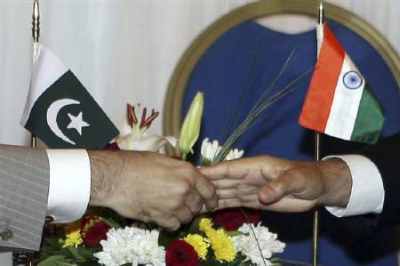 | « Back to article | Print this article |
A different war at Wagah, on the trade clamps of the past and present
Amritsar used to be an important trade centre along the old Grand Trunk Road, but that was before the creation of Pakistan in 1947.
The Partition made it a border town -- the Wagah-Attari border is less than 30 km away -- and did away with much of its economic underpinning.
That's set to change, in a rather huge way.
Click NEXT to read further. . .
A different war at Wagah, on the trade clamps of the past and present
And, the implications would, if things go as intended, speed well beyond this city to the entire South Asian region.
Last month, the home ministers of both countries inaugurated the new Integrated Check Post right at the border crossing, a 48-hectare affair.
It has some activity right now, but nothing compared to what's going to happen.
Last month, the Pakistan government opened bilateral trade to 5,000-odd items, a quantum leap.
Later this week, the two countries are expected to ease the tight visa regime they have in place for each other, allowing multiple-entry visas; clamps on trade are supposed to be on a fast-track to ending in subsequent months.
Click NEXT to read further. . .
A different war at Wagah, on the trade clamps of the past and present
As of now, only 137 items can go through the Wagah-Attari route (it used to be only 14 till very recently).
Businessmen on both sides are salivating at the prospect of all the 5,000-odd items being allowed by road this way, as intended, followed by the rest of the opening.
Two-way trade is currently the equivalent of $2.5 billion; an explosion to $10bn once the first of these set of changes takes place is confidently predicted.
After which, the sky's the limit, and pure economics is the driver.
On an average, road transport is, as The Economist notes, just a third of the cost of shipping goods to Pakistan by sea, the usual procedure now for almost everything allowed to be traded.
Click NEXT to read further. . .
A different war at Wagah, on the trade clamps of the past and present
Even under the restrictive regime, trade was swelling, given the economics.
Export to Pakistan through Wagah was Rs 798 crore (Rs 7.98 billion) in 2009-10, Rs 1,171 crore in 2010-11 and Rs 1,376 crore (Rs 13.76 billion) in 2011-12; imports were Rs 396 crore (Rs 3.96 billion), Rs 453 crore (Rs 4.53 billion) and Rs 965 crore (Rs 9.65 billion), respectively.
This, with a handful of items which could be traded.
Remove the barriers, as both governments have promised to do on an early schedule, and what happens can only be guessed at.
Click NEXT to read further. . .
A different war at Wagah, on the trade clamps of the past and present
The implications, of course, go well beyond just trucks and cargo. Nadeem Ahmed Cheema, vice-chairman of the local chamber of commerce on the Pak-Punjab side notes some of the first changes inevitable – 'buyer-seller meets, exhibitions, collaborative seminars, workshops, group discussions, tours, all at frequent intervals'.
Cell phones, SMSes, buzzing to and fro, personal visits, the inevitable tourism and travel in tow, going on to other sectors.
The only hindrance, actually, is the imagination or lack of these in the political and government bureaucracies, but it begins with trade.
Both countries have huge and burgeoning populations, massive development requirements, surging industrial and consumer demand.
Click NEXT to read further. . .
A different war at Wagah, on the trade clamps of the past and present
And, they're right next to each other.
Notes Gunbir Singh of the Confederation of Indian Industry's council on public policy, " "Why buy at twice the cost from a distant friend rather than a cost-effective neighbour?" He speaks for India, as much of Pakistan's benefit in this regard.
Many on both sides have already taken the first steps. Suneet Kochhar, director of Khana Paper Mills, told Business Standard about his despatch ('the first consignment') of 10 tonnes of newsprint via Attari-Wagah for one of Pakistan's leading newspaper chains.
He's confidently expecting more, noting that Pakistan produces no newspr#8747 his own is 300 tonnes a day.
Click NEXT to read further. . .
A different war at Wagah, on the trade clamps of the past and present
How, he asks, can orders not come and in bulk?
Multiply that by a million times, to begin with, and you get some idea of what can lie ahead. It would dwarf the present scale of change -- 2,800 trucks crossed in April 2011, 3,800 last month; eight hours daily then, 12 hours now and so on.
This isn't incremental change with a small 'i' we're talking of, but something for which there's been no precedent till now.
Suddenly looming as reality, this year.
Keep your fingers crossed.
